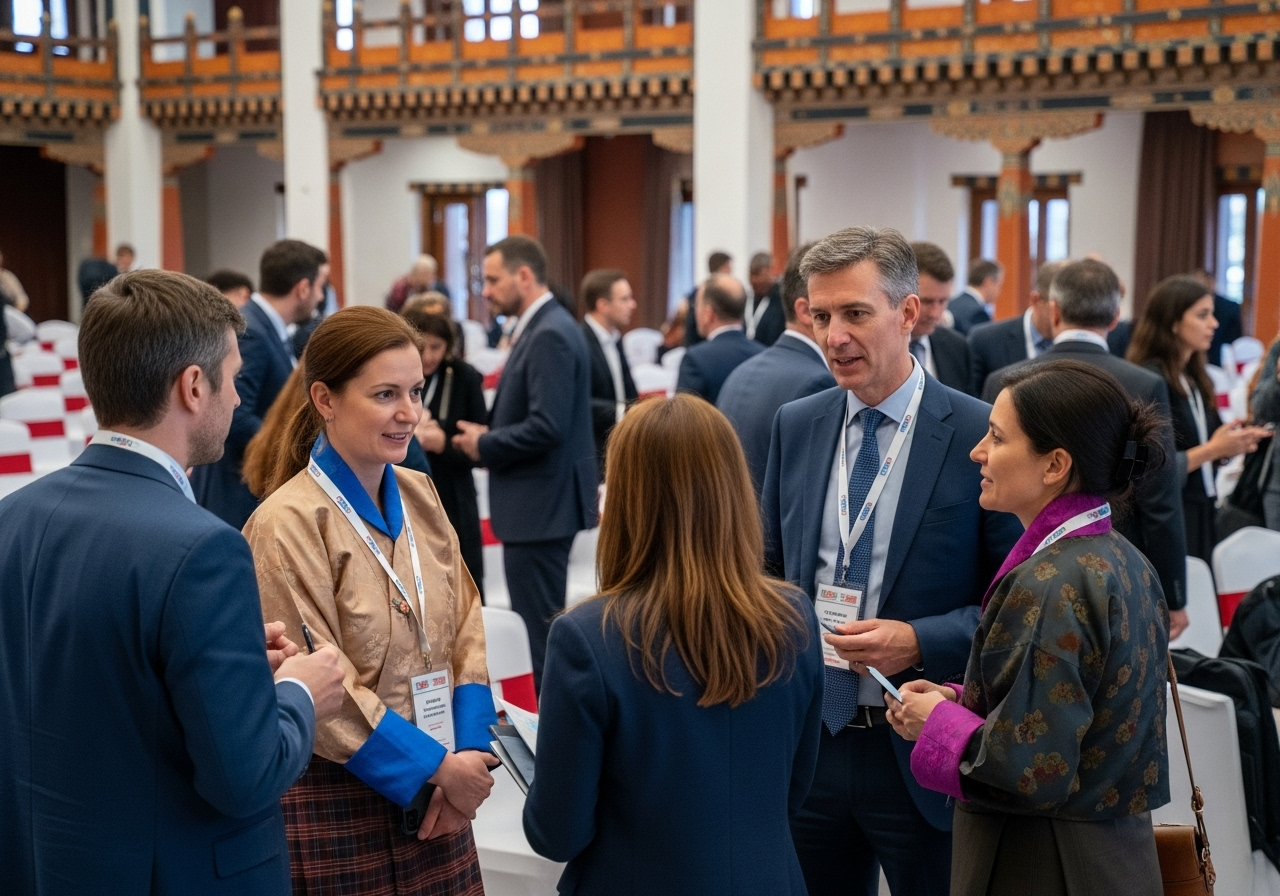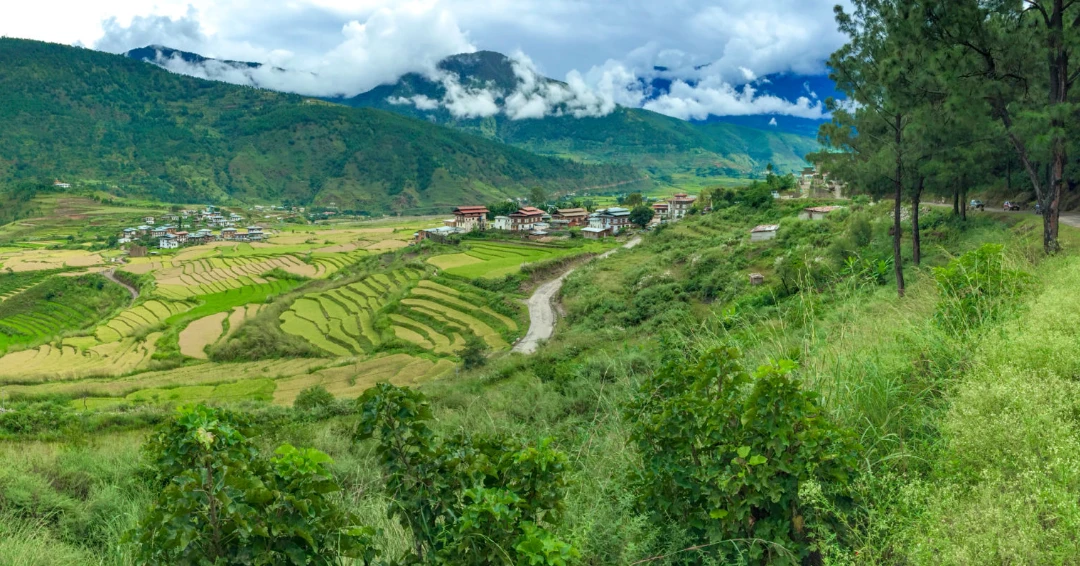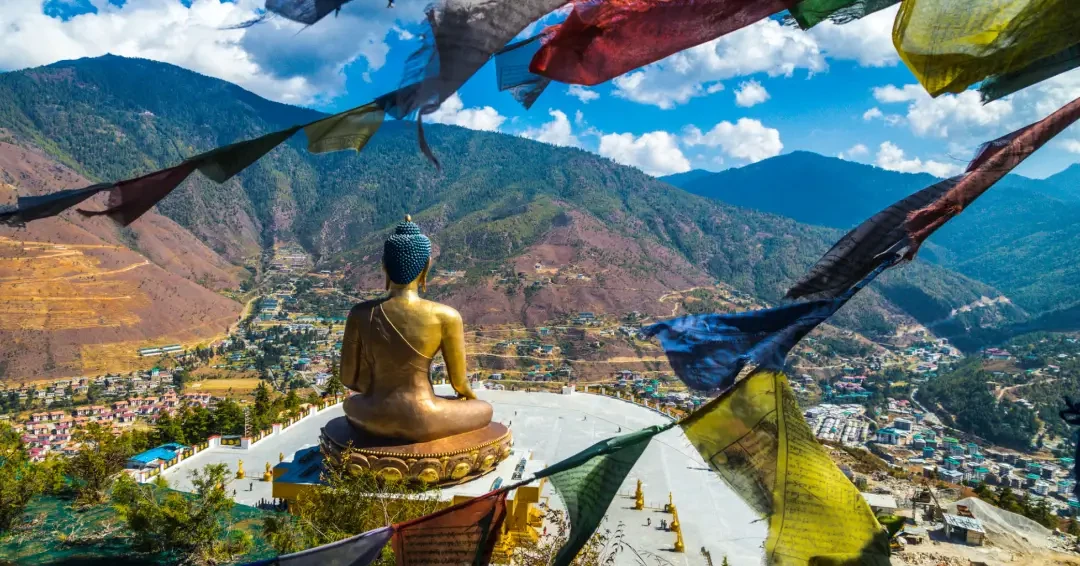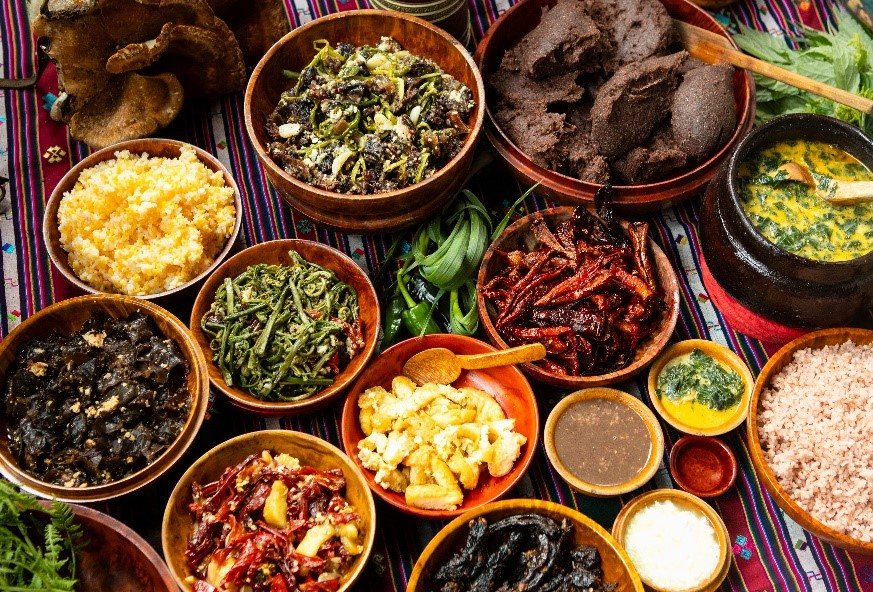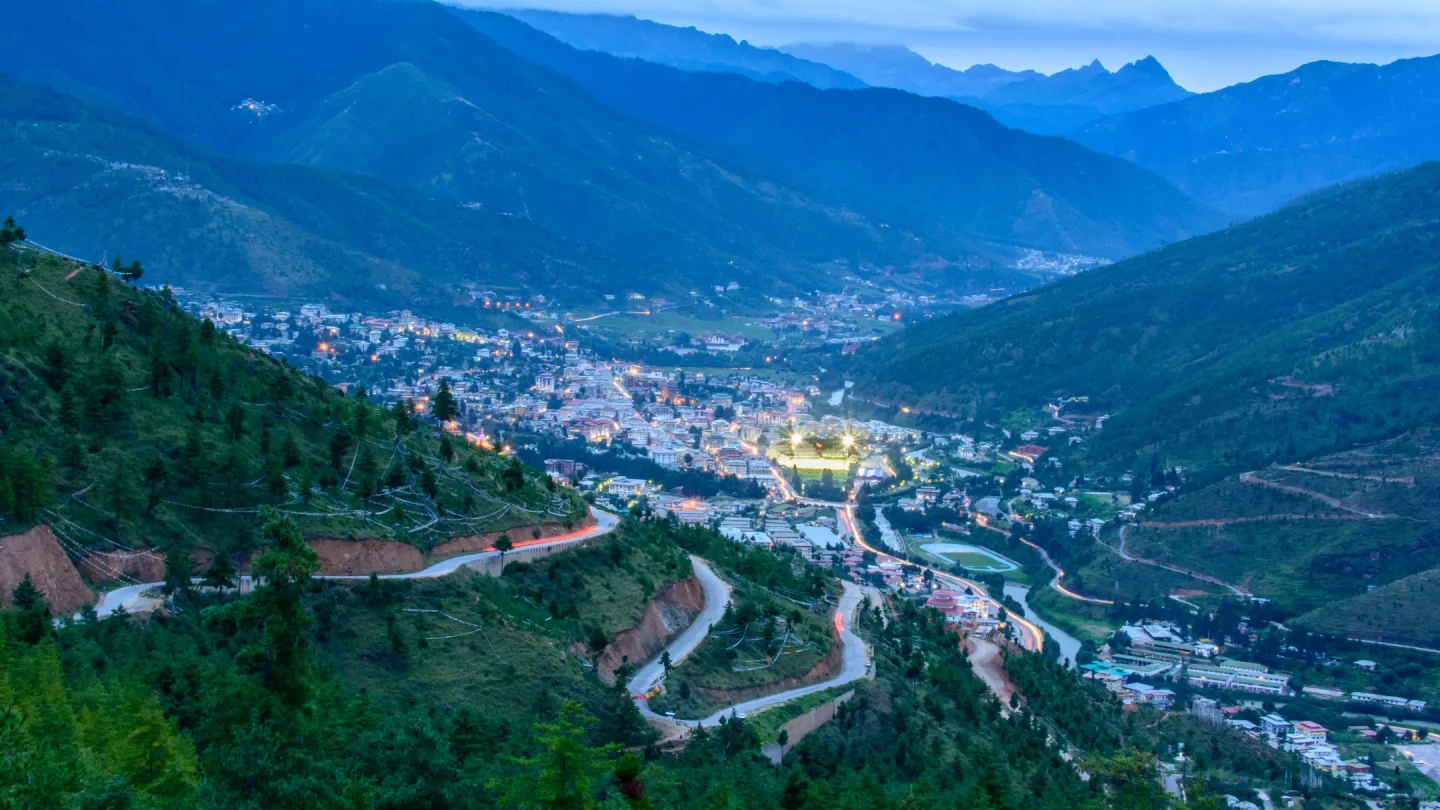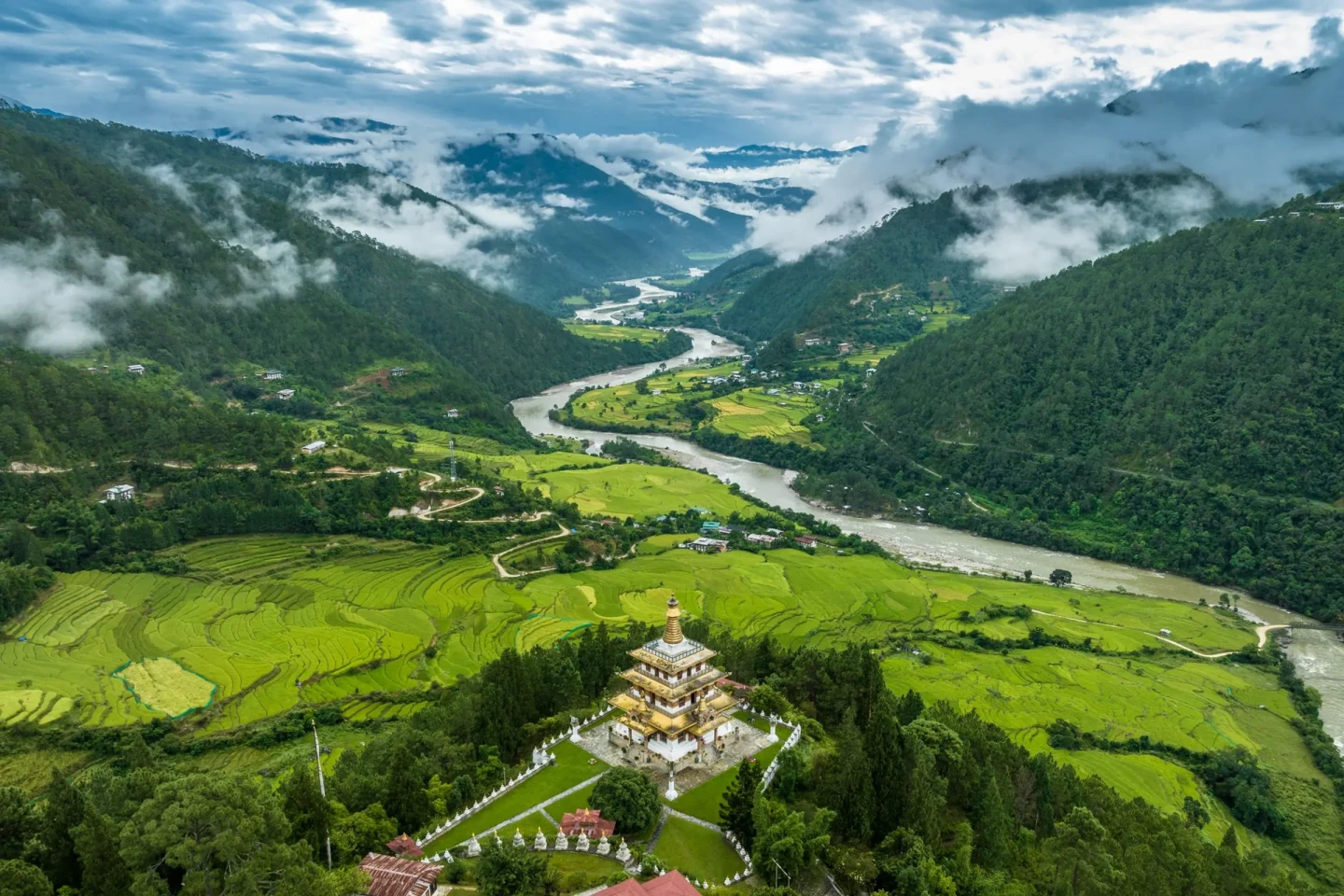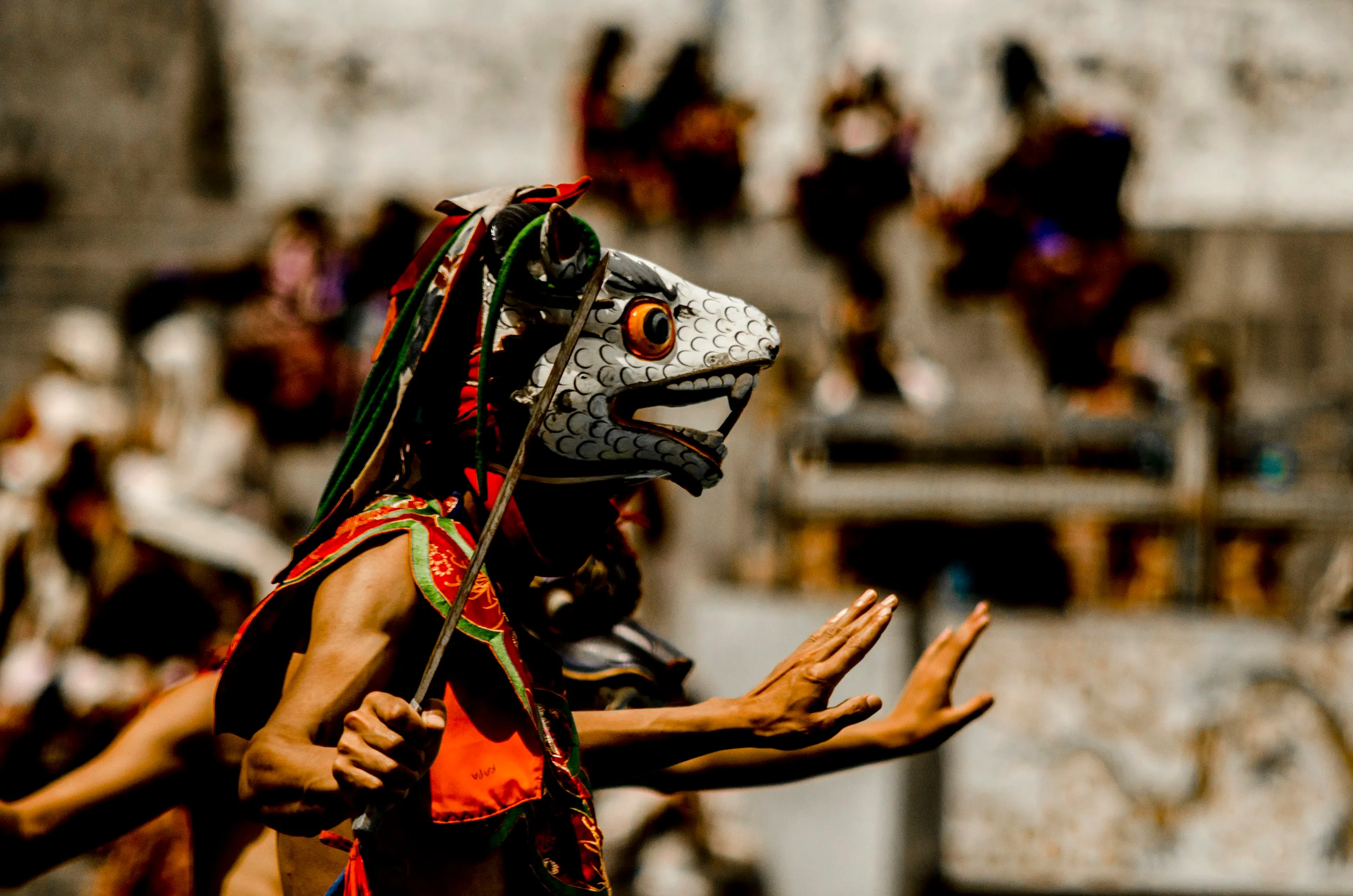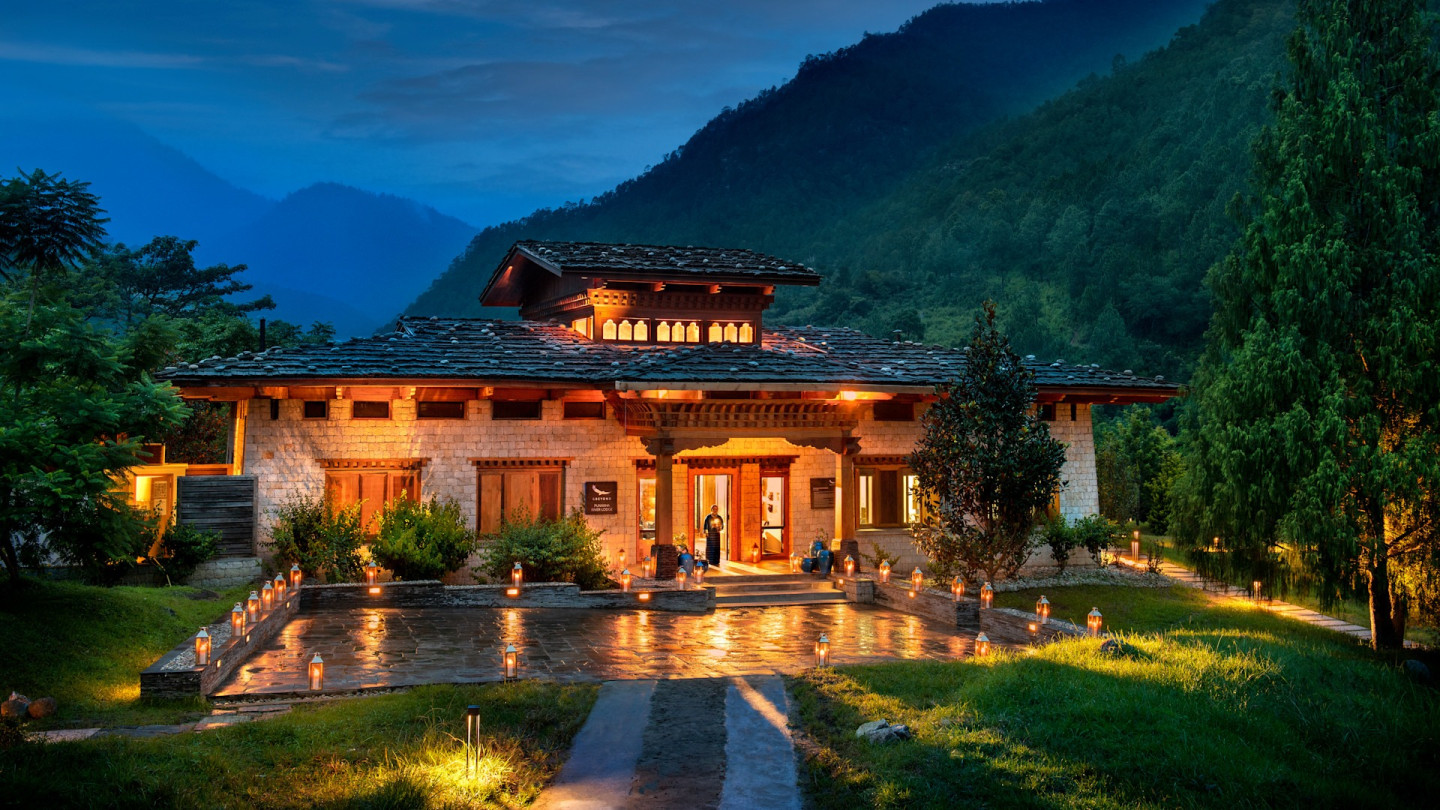Nestled in the heart of the Eastern Himalayas, Bhutan emerges as a serene sanctuary of ancient traditions, breathtaking landscapes, and profound spiritual depth, offering Syrian travelers a rare escape from the complexities of modern life. This landlocked kingdom, often referred to as the "Land of the Thunder Dragon," maintains a deliberate pace of development, prioritizing environmental conservation and cultural preservation over rapid industrialization. For Syrian visitors, who hail from a nation rich in millennia-old history and diverse cultural tapestries shaped by ancient civilizations like the Assyrians and Arabs, Bhutan presents intriguing parallels and contrasts. Both countries boast deep-rooted heritages—Syria with its iconic sites such as the ancient city of Palmyra and the Umayyad Mosque, and Bhutan with its majestic dzongs and sacred monasteries that echo centuries of Buddhist philosophy. However, while Syria has endured recent geopolitical challenges and urban transformations, Bhutan remains remarkably untouched by conflict, embracing a philosophy of peace and harmony that has shielded it from the scars of war. Diplomatic relations between Syria and Bhutan are cordial yet understated, as both are members of the United Nations and share commitments to global peace, though formal ties are limited due to Bhutan's selective engagement with only a handful of nations worldwide. This minimal interaction underscores Bhutan's isolationist yet welcoming stance, making it an ideal destination for Syrians seeking solace in nature's embrace. What draws many is Bhutan's commitment to Gross National Happiness, a holistic measure of well-being that contrasts with material-driven metrics, inviting travelers to reflect on life's simpler joys amidst towering mountains, lush valleys, and vibrant festivals. Yet, this allure comes with realism: Bhutan is not a mass-tourism hub but a controlled paradise where visitors must navigate structured entry and embrace its unhurried rhythm, promising transformative experiences for those willing to immerse themselves fully.
Visa and Entry Requirements
Bhutan's tourism policy is uniquely controlled to preserve its cultural integrity and environment, mandating that all foreign visitors, including those from Syria, book their trips exclusively through licensed Bhutanese tour operators. This "high value, low volume" approach ensures sustainable tourism while providing a seamless experience. For Syrian tourists, the visa process begins with selecting a reputable tour operator who will handle the application on your behalf, as individual applications are not permitted. Required documents typically include a valid passport with at least six months' validity from the date of entry, a recent passport-sized photograph, proof of travel insurance covering medical emergencies and evacuation, and details of your itinerary. The tour operator submits these to the Tourism Council of Bhutan, which processes the visa clearance letter—usually within 72 hours once full payment for the tour is received. Payment is intrinsically linked to visa approval; the tour cost, including the Sustainable Development Fee (SDF), must be wired in advance to the operator's account, after which the visa is issued electronically or stamped upon arrival at Paro International Airport or land borders. The SDF, a daily levy supporting Bhutan's development in education, healthcare, and conservation, currently stands at USD 100 per person per night for non-South Asian Association for Regional Cooperation (SAARC) nationals like Syrians, with children under six exempt and those aged 6-12 paying half. This fee, reduced from previous rates to encourage post-pandemic tourism until at least 2027, significantly impacts overall pricing, often making a week-long trip cost between USD 1,500 and USD 3,000 per person, inclusive of accommodations, meals, transport, and guides. Syrian travelers should note that while eVisas are available for some nationalities, the operator-mediated system ensures compliance, and overstaying or independent travel is strictly prohibited, with penalties including fines or deportation.
Travel Routes from Syria to Bhutan
Reaching Bhutan from Syria involves multi-leg journeys due to the absence of direct flights, requiring transits through major hubs in the Middle East or Asia, with final connections limited to Bhutan's national carriers. From major Syrian cities like Damascus or Aleppo, travelers typically fly via airlines such as Turkish Airlines, Qatar Airways, or Emirates, routing through Istanbul, Doha, or Dubai to key gateway cities like Delhi (India), Bangkok (Thailand), or Kathmandu (Nepal). For instance, a common route from Damascus International Airport involves a flight to Istanbul (about 2 hours), followed by a connection to Delhi (around 6 hours), and then a short hop to Paro on Druk Air or Bhutan Airlines (1-2 hours). These Bhutanese airlines operate from only a handful of international points—primarily Delhi, Bangkok, Kathmandu, Singapore, and Kolkata—due to Paro International Airport's challenging location in a narrow valley surrounded by high peaks, which demands visual flight rules and experienced pilots. The airport, one of the world's most demanding for landings, often experiences delays or cancellations owing to unpredictable Himalayan weather, such as fog, rain, or strong winds, particularly during the monsoon season from June to August. Syrian travelers should book flights well in advance, ideally through their tour operator who coordinates with Druk Air or Bhutan Airlines, and allow buffer days for potential disruptions—expect total travel time of 12-20 hours including layovers. Realistic expectations include higher costs for the Bhutan leg (USD 200-400 one-way), limited baggage allowances (20kg checked), and the thrill of a dramatic descent into Paro, but prepare for flexibility as flights operate only during daylight and good visibility, with no night operations possible.
Best Time to Visit and Seasonality
Bhutan's diverse topography creates varied microclimates, dividing the year into distinct seasons that profoundly influence travel experiences, from weather patterns to cultural events. Spring (March to May) brings mild temperatures averaging 10-20°C (50-68°F) in valleys like Paro and Thimphu, with blooming rhododendrons and clear skies ideal for trekking and sightseeing, though occasional showers may occur. This period aligns with festivals like the Paro Tshechu in April, featuring masked dances and religious rituals that offer Syrian travelers a vibrant introduction to Bhutanese Buddhism. Summer (June to August) ushers in the monsoon, with heavy rainfall (up to 500mm monthly) causing humid conditions, landslides, and foggy mountain passes, making roads treacherous and flights unreliable—while lush greenery thrives, it's less recommended for first-time visitors unless focusing on eastern Bhutan's drier areas. Autumn (September to November) stands out as the prime season, with crisp air (5-15°C or 41-59°F), azure skies, and harvest festivals like Thimphu Tshechu in October, drawing crowds but providing unparalleled views of snow-capped peaks and opportunities for cultural immersion. Winter (December to February) offers cold, dry weather (0-10°C or 32-50°F, dropping below freezing at higher altitudes), perfect for birdwatching and low-season tranquility, though high passes may be snowbound. For Syrian tourists accustomed to Mediterranean climates with hot summers and mild winters, autumn is ideal, balancing comfortable weather, fewer crowds than spring, and festival highlights, while avoiding the intense heat or aridity familiar from home. Trip planning should factor in these seasons: book early for peak times to secure accommodations and guides, and prepare for altitude-related chill regardless of the month.
Money, Costs, and Payment Methods
Bhutan's currency, the Ngultrum (BTN), is pegged one-to-one with the Indian Rupee (INR), which is also widely accepted, simplifying exchanges for international visitors. Syrian travelers should exchange currency at Paro Airport, authorized banks like Bhutan National Bank, or hotels, as rates are government-regulated and favorable—carrying USD is advisable for easy conversion, though Euros or other major currencies are accepted at slightly less optimal rates. ATMs are increasingly available in major towns like Thimphu and Paro, supporting Visa and Mastercard with withdrawal limits around BTN 20,000 (about USD 240) per transaction, but reliability dips in remote areas, so rely on cash for rural excursions. Credit cards are accepted at upscale hotels, souvenir shops, and some restaurants in urban centers, but expect surcharges and limited use elsewhere—mobile payments via apps like MBoB are emerging but not tourist-friendly yet. Tour packages, mandatory for Syrians, typically cover accommodations in 3-star hotels or better, all meals (breakfast, lunch, dinner), internal transport by private vehicle, English-speaking guides, and entry fees, with costs embedded in the daily minimum of USD 250-300 per person (including SDF). Extra expenses include personal items like souvenirs (USD 50-200), alcoholic beverages (local beer USD 2-5), tips for guides and drivers (USD 10-15 per day per person), and optional activities like hot stone baths (USD 20-50). Syrian visitors, used to bargaining in markets, should note Bhutan's fixed-price culture in most shops, and budget an additional 10-20% beyond the tour fee for incidentals, ensuring a stress-free financial experience in this cash-preferred society.
Health, Safety, and Travel Insurance
Traveling to Bhutan requires mindful health preparations, particularly given its high-altitude terrain where elevations range from 150m in the south to over 7,000m in the north, posing risks of acute mountain sickness (AMS) with symptoms like headaches, nausea, and fatigue. Syrian travelers should consult physicians before departure, ensuring vaccinations for Hepatitis A, Typhoid, Tetanus, and possibly Rabies due to stray dogs, while routine shots like MMR and Polio are advised. Medical facilities are basic outside Thimphu, with Jigme Dorji Wangchuck National Referral Hospital offering competent care but limited specialists—bring personal medications, as pharmacies stock essentials but not all brands. Safety in Bhutan is exemplary, with low crime rates attributed to strong community values and minimal theft, though petty incidents like pickpocketing can occur in crowded festivals; natural hazards include uneven paths, slippery trails during rains, and occasional encounters with wildlife or stray animals. Travel insurance is non-negotiable, as mandated by Bhutanese authorities, covering medical expenses up to USD 100,000, emergency evacuation by helicopter (crucial for remote areas and AMS, costing USD 5,000-10,000), trip cancellation, and baggage loss—Syrian policies should include high-altitude clauses, as standard ones may exclude trekking. This comprehensive coverage provides peace of mind, allowing focus on Bhutan's wonders rather than unforeseen challenges.
Cultural Etiquette and Social Expectations
Bhutanese society is deeply rooted in Buddhist principles of respect, humility, and harmony, requiring Syrian travelers to adapt their behaviors to foster positive interactions and avoid unintentional offenses. In temples, monasteries, and dzongs—sacred fortresses serving as administrative and religious centers—visitors must dress modestly, covering shoulders, arms, and legs, with women encouraged to wear scarves and men to avoid shorts; remove hats, shoes, and sunglasses upon entry, and walk clockwise around stupas or prayer wheels as a sign of reverence. Photography inside religious sites is often prohibited without permission, and speaking softly while refraining from pointing at deities or monks is essential. Socially, Bhutanese value patience and politeness—greet with "Kuzuzangpo la" (hello) and use both hands or the right hand when giving or receiving items, never the left, which is considered impure. Humility shines through in avoiding loud conversations or public displays of affection, aligning with Bhutan's collective ethos over individualism. For Syrians, whose culture emphasizes hospitality and family ties, slight adjustments might include toning down expressive gestures common in Arab interactions to match Bhutan's subdued demeanor, while embracing shared values like respect for elders and communal dining. Tipping is not customary but appreciated for exceptional service, and engaging locals with genuine curiosity about their traditions builds bridges, enriching the experience while honoring Bhutan's cultural sanctity.
Connectivity, SIM Cards, Internet Access
Staying connected in Bhutan is feasible but requires planning, as infrastructure prioritizes essential coverage over ubiquitous high-speed access. Wi-Fi is reliably available in most hotels, guesthouses, and cafes in urban areas like Thimphu and Paro, often free but with varying speeds suitable for emails and browsing, though streaming may lag in remote valleys. For mobile data, Syrian travelers can purchase local SIM cards upon arrival at Paro Airport or town outlets from providers B-Mobile (Bhutan Telecom) or TashiCell, both offering tourist packages starting at BTN 200-500 (USD 2.50-6) with 2-5GB data, local calls, and validity up to 30 days—bring your passport for registration, and top-ups are easy via scratch cards or apps. Coverage is strong in populated areas with 4G, but spotty in highlands or during treks, where satellite options are absent. Syrian apps like WhatsApp or banking services work without major restrictions, as Bhutan has open internet policies, though occasional slowdowns occur; a VPN is useful for privacy or bypassing any rare geo-blocks, especially if accessing Syrian-specific content. Overall, embrace occasional disconnections as part of Bhutan's charm, using downtime to engage with the surroundings rather than screens.
Language and Communication
Dzongkha serves as Bhutan's official language, a Tibetan-derived tongue spoken by the majority, but English is the medium of instruction in schools and widely used in tourism, easing communication for international visitors. Syrian travelers will find hotel staff, guides, and shopkeepers proficient in English, particularly in touristic hubs, where conversations flow smoothly on itineraries, history, or daily needs. However, in rural villages, locals may rely on Dzongkha or regional dialects like Sharchopkha, creating minor barriers—tour operators provide English-speaking guides as standard, who act as interpreters. Arabic-speaking guides are exceedingly rare, with no common availability due to limited demand and Bhutan's focus on English and Asian languages; if needed, request in advance, though it may incur extra costs or prove unavailable. For those with limited English, strategies include using simple phrases, visual aids like translation apps (Google Translate supports Dzongkha), or non-verbal cues such as gestures and smiles, which align with Bhutan's hospitable nature. Learning basic Dzongkha words—"Tashi Delek" for greetings or "Ga chi bey?" for "How much?"—fosters goodwill, turning potential challenges into opportunities for cultural exchange.
Packing and Preparation Advice
Packing for Bhutan demands versatility to handle its Himalayan climate, where temperatures fluctuate dramatically by altitude and season, from subtropical warmth in lowlands to frigid highs in mountains. Syrian travelers, familiar with arid conditions, should prioritize layers: breathable cotton shirts and pants for days, supplemented by fleece jackets, thermal underlayers, and waterproof windbreakers for evenings or higher elevations—include scarves, gloves, and woolen hats for winter or treks. Footwear is crucial; sturdy, waterproof hiking boots with good grip for trails, comfortable sneakers for towns, and flip-flops for hotel rooms or wet areas. Rain gear like ponchos or umbrellas is essential during monsoon, while sun protection—hats, sunglasses, and SPF 50+ sunscreen—guards against intense UV rays at altitude. Personal items include reusable water bottles for hydration, insect repellent for lowlands, and a first-aid kit with bandages, antiseptics, and altitude sickness remedies like Diamox (consult a doctor). Medications for common ailments—pain relievers, antidiarrheals, and any prescriptions—are vital, as availability varies. Power adapters for Bhutan's 230V supply with Type D, F, or G plugs, plus portable chargers for outages, are practical. Other considerations: modest clothing for religious sites (long sleeves, pants), binoculars for wildlife, and a daypack for excursions. Limit luggage to 20kg for flights, focusing on eco-friendly items to align with Bhutan's conservation ethos, ensuring comfort in unpredictable weather.
Bhutan’s Unique Tourism Philosophy
At the core of Bhutan's tourism lies the philosophy of Gross National Happiness (GNH), a visionary framework introduced in the 1970s by the Fourth King, Jigme Singye Wangchuck, which measures progress through psychological well-being, health, education, and environmental sustainability rather than economic output alone. This holistic approach shapes the country's cautious tourism policies, emphasizing "high value, low impact" to prevent the cultural erosion and environmental degradation seen in other destinations. For Syrian travelers, understanding GNH reveals why Bhutan limits visitor numbers through mandatory guided tours and the SDF—it's not exclusionary but protective, ensuring tourism benefits locals by funding community projects while preserving biodiversity, with over 70% forest cover maintained. Quality over quantity means personalized experiences, like intimate festival attendances or eco-treks, rather than overcrowded sites, fostering authentic connections. This philosophy underpins restrictions on development; no high-rise buildings or mass infrastructure, as modernization is balanced against spiritual and ecological harmony. Syrians, from a land of resilient heritage, may appreciate how GNH safeguards Bhutan's identity, inviting reflection on sustainable living amid global pressures.
Mindset and Expectations for Visitors
Visiting Bhutan requires a mindset shift toward embracing simplicity and introspection, as the kingdom's slower pace of life contrasts with the bustling energy often found in Syrian urban centers. Expect unhurried days where itineraries may flex due to weather or local events, encouraging patience as a virtue in this Buddhist society. Infrastructure is functional but modest—roads wind through mountains with occasional bumps, and accommodations are cozy 3-4 star hotels or homestays emphasizing comfort over opulence, without five-star extravagance in remote areas. Nightlife is virtually absent, with no clubs or bars beyond quiet hotel lounges, and luxury shopping yields to artisan crafts rather than malls or designer brands. Syrian travelers should anticipate an emphasis on nature, culture, and spirituality: hikes through pristine forests, meditations at ancient monasteries, and conversations on happiness philosophy, rather than material conveniences like high-speed internet everywhere or gourmet international cuisine. This focus cultivates deeper fulfillment, but set realistic expectations—no fast-paced adventures or commercial thrills, but profound serenity that rewards those open to disconnecting from the familiar.<
Food and Dining Culture
Bhutanese cuisine reflects the kingdom's agrarian roots and Himalayan influences, characterized by bold, spicy flavors from abundant chilies, rich cheese, and simple, hearty ingredients that warm against the cold climate. Staples include red rice, nutty and nutritious, often paired with ema datshi—the national dish of fresh green chilies stewed in yak or cow's cheese sauce, fiery yet creamy, which Syrian palates accustomed to spiced Levantine dishes might find intriguingly familiar yet unique. Other common offerings are phaksha paa (pork with red chilies and vegetables), momos (steamed dumplings filled with meat or vegetables), and jasha maru (spicy chicken stew), all emphasizing fresh, organic produce with minimal processing. Dining is communal and hospitable, with meals served family-style in homes or restaurants, where hosts offer seconds generously—tea, like suja (butter tea) or ngaja (sweet milk tea), plays a central role in social rituals, sipped throughout the day for warmth and camaraderie. Alcohol, such as ara (rice wine) or local beer, is enjoyed moderately, often during festivals, but overindulgence is frowned upon. For Syrians, who value shared meals like mezze, Bhutan's food fosters similar bonds, though vegetarians thrive with cheese-heavy options, and those sensitive to spice can request milder versions, turning each meal into a cultural dialogue.
Festivals, Religion, and Sacred Places
Religion permeates every aspect of Bhutanese life, with Vajrayana Buddhism as the state faith, influencing architecture, art, and daily rituals that Syrian travelers can witness for a profound cross-cultural insight. Festivals, or tshechus, honor Guru Rinpoche, the saint who introduced Buddhism, through masked dances, music, and theatrical performances in dzongs, drawing communities in colorful attire—these events, like Paro Tshechu in spring or Thimphu Tshechu in autumn, offer spiritual merit and social unity, allowing visitors to observe cham dances symbolizing good over evil. At sacred sites such as Taktsang Monastery (Tiger's Nest) or Punakha Dzong, conduct rules are strict: enter clockwise, speak quietly, avoid touching artifacts, and dress conservatively without hats or shoes. These experiences deepen understanding of Bhutan's worldview, where karma and compassion guide actions, contrasting yet complementing Syria's Abrahamic traditions, enriching travelers through shared themes of devotion and community.
Hidden Challenges and Practical Inconveniences
While Bhutan's allure is undeniable, subtle challenges arise from its rugged terrain and developing infrastructure, which Syrian travelers should view as integral to its authentic charm rather than flaws. Service in restaurants or hotels may proceed at a leisurely pace, reflecting the kingdom's unhurried ethos, so cultivate patience during waits that allow for meaningful conversations. Itineraries can shift unexpectedly due to weather-closed roads or festival schedules, requiring flexibility—mountain passes like Dochula may fog over, delaying drives but unveiling stunning vistas later. Power outages occur sporadically, especially in remote areas, where candlelit evenings evoke a romantic simplicity, and road conditions involve winding, bumpy paths that heighten the adventure of journeys between valleys. These inconveniences stem from Bhutan's commitment to minimal environmental impact, preserving its pristine state, and embracing them fosters resilience, turning potential frustrations into memorable stories of adaptation and discovery.
Shopping and Souvenirs
Shopping in Bhutan centers on authentic handicrafts that embody the kingdom's artisanal heritage, offering Syrian travelers meaningful mementos rather than mass-produced goods. Markets in Thimphu and Paro brim with handwoven textiles like kira (women's wraps) and gho (men's robes) in vibrant silks or cottons, alongside bamboo baskets, wooden masks, and prayer wheels crafted by local cooperatives. Incense from natural herbs, thangka paintings depicting Buddhist motifs, and silver jewelry add to the selection, with government-run emporiums ensuring quality and fair prices. Unlike Syrian souks where haggling is artful, bargaining in Bhutan is uncommon and subtle—fixed prices prevail in official shops, though small discounts may apply for bulk buys in weekend markets. Seek authenticity by purchasing from certified outlets to support communities, avoiding fakes, and note export restrictions on antiques. This mindful shopping aligns with Bhutan's values, turning souvenirs into cultural bridges.
Altitude Awareness and Physical Preparedness
Bhutan's elevations, averaging 2,000-3,000m in popular areas, demand altitude awareness, as acute mountain sickness affects individuals differently, with symptoms like dizziness or shortness of breath emerging above 2,500m. Syrian travelers, unaccustomed to such heights, should acclimatize gradually—spend initial days in lower valleys like Paro (2,200m), avoiding strenuous activity, and ascend slowly, perhaps hiking Tiger's Nest after day three. Precautions include hydrating with 3-4 liters daily, eating light carbohydrate-rich meals, and avoiding alcohol or caffeine, which exacerbate dehydration. Monitor for severe signs like confusion, prompting immediate descent and medical aid—tour guides are trained to recognize issues. Physical preparation involves pre-trip cardio exercises, and carrying medications like acetaminophen for headaches, ensuring safe enjoyment of Bhutan's lofty wonders.
Security, Safety, and Emergency Information
Bhutan ranks among the world's safest destinations, with negligible violent crime and a society built on trust and mutual respect, allowing Syrian travelers to explore with confidence. Petty theft is rare but possible in crowds, so secure valuables; natural risks like landslides or animal bites warrant caution on trails. Local laws emphasize environmental protection—littering or defacing sites incurs fines—and tobacco is heavily regulated. For emergencies, dial 112 for ambulance, 113 for police, or 110 for fire; tour guides carry first-aid and coordinate responses. No Syrian embassy exists in Bhutan; contact the nearest in New Delhi, India (+91-11-2614-8385), or Bhutan's Foreign Ministry for assistance. This secure environment, bolstered by community vigilance, ensures worry-free journeys.
Photography and Drones
Photography in Bhutan captures its stunning vistas and festivals, but rules protect sacred spaces—inside temples or dzongs, seek permission or refrain entirely, as flashes and tripods are often banned to preserve sanctity. When photographing locals, ask consent respectfully, especially monks or during rituals, to honor privacy. Drones are tightly regulated; tourists must obtain prior permits from the Bhutan Civil Aviation Authority, which are rarely granted for recreational use and prohibited near airports, military sites, or monasteries—confiscation at entry is common without approval. Adhering to these guidelines ensures ethical captures that respect Bhutan's cultural boundaries.
What Bhutan Does Not Have
Bhutan's deliberate preservation means absences that enhance its uniqueness: no towering skyscrapers piercing the skyline, no fast-food chains like McDonald's disrupting local eateries, no casinos tempting with games of chance, and no sprawling shopping malls filled with global brands. These omissions stem from GNH principles, prioritizing spiritual and environmental health over consumerism, allowing travelers to appreciate unspoiled authenticity as a refreshing contrast to urbanized worlds.
Important Questions to Ask Before Booking a Tour
Before confirming your Bhutan tour, engaging in thoughtful dialogue with the operator clarifies expectations and tailors the experience. Inquire about the guide's qualifications and language skills—will they speak fluent English, and is there flexibility for Arabic translation if needed, perhaps via apps or supplementary staff? Discuss itinerary flexibility: how adaptable is the schedule to personal interests, like extending time at monasteries or adjusting for health concerns, and what contingency plans exist for weather disruptions? Probe accommodations: are they comfortable 3-star properties with private baths, and can upgrades or dietary preferences, such as halal options or spice levels akin to Syrian cuisine, be accommodated? Ask about food inclusions—does the package cover all meals with variety, including vegetarian choices, and how are allergies handled? For emergencies, confirm the operator's protocols: do guides carry first-aid kits, satellite phones for remote areas, and coordination with evacuation services? Regarding connectivity, question SIM card arrangements—can they procure a TashiCell or B-Mobile tourist SIM upon arrival, and is Wi-Fi reliable in hotels? On tipping, seek guidance: what's the customary amount for guides and drivers, typically USD 10-15 daily? Finally, verify insurance requirements: does the tour mandate comprehensive coverage, and can they recommend policies including high-altitude evacuation? These questions ensure a seamless, personalized journey aligned with your needs.
Conclusion: Embracing Bhutan's Essence
In a world dominated by hurried pursuits and commercial allure, Bhutan stands as a beacon of tranquility, inviting Syrian travelers to discover a realm where cultural depth, natural splendor, and spiritual serenity converge in profound harmony. This Himalayan jewel, with its commitment to Gross National Happiness and mindful living, offers not just a vacation but a journey inward, where the majesty of snow-capped peaks and ancient rituals inspire reflection and renewal. For those from Syria, seeking respite from familiar landscapes, Bhutan promises an enriching contrast—a place to reconnect with timeless values amid unspoiled beauty, fostering memories that transcend the ordinary and nurture the soul.

